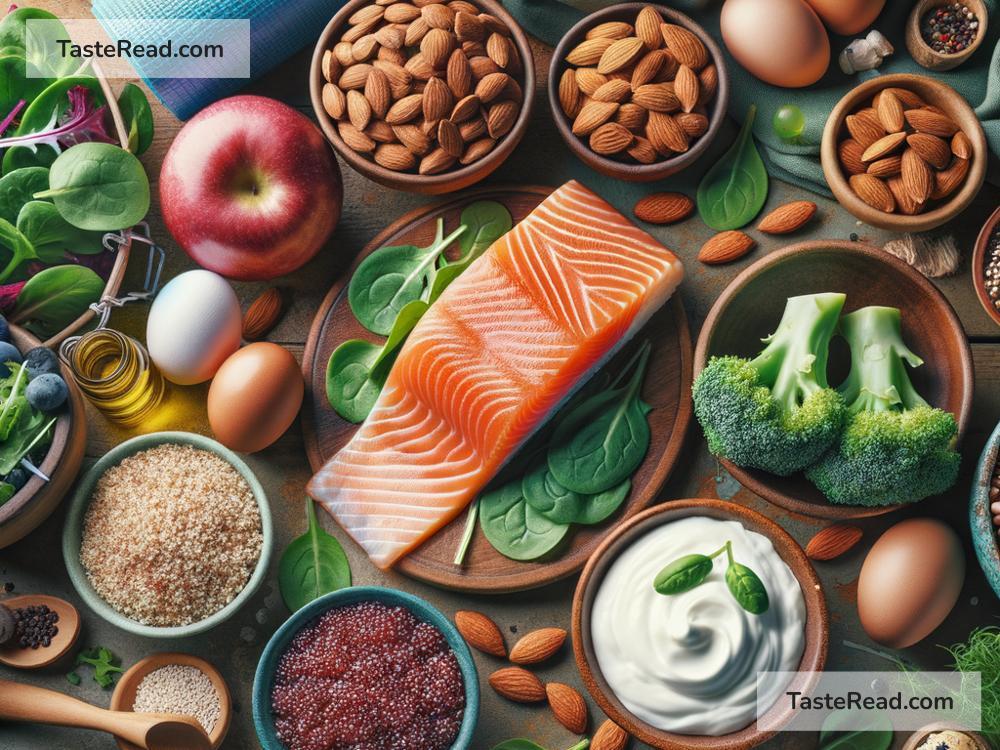Foods That Enhance Core Strength: Nourishing Your Body for a Stronger Foundation
Your core is the powerhouse of your body—it’s made up of muscles in your abdomen, back, and pelvis that support posture, balance, and almost every movement you make. Whether you’re an athlete, fitness enthusiast, or someone simply trying to improve their overall health, strengthening your core is essential. While exercise plays a big role in developing core strength, what you eat also matters. Certain foods can fuel your body, repair muscles, and provide the nutrients needed to build a strong foundation. Let’s explore foods that enhance core strength and how they work.
1. Protein-Packed Foods for Muscle Repair and Growth
Protein is essential for building and repairing muscles. Without enough protein, your core muscles won’t develop properly, especially after exercise. It also helps prevent muscle loss as you age.
- Eggs: Eggs are a complete protein source, meaning they contain all the amino acids your body needs for muscle repair and growth. They’re also rich in vitamin D, which supports bone health.
- Chicken and Turkey: Lean meats like chicken and turkey are excellent sources of protein while being low in fat, making them great for muscle recovery and growth.
- Greek Yogurt: Packed with protein and probiotics, Greek yogurt helps strengthen gut health, which is important for nutrient absorption. Mix it with fruits or granola for a healthy snack.
- Lentils and Beans: For plant-based eaters, lentils, black beans, chickpeas, and other legumes are fantastic alternatives to animal protein. They’re also rich in fiber, which supports digestion.
2. Healthy Fats for Energy and Muscle Strength
Fats often get a bad reputation, but healthy fats are an important part of strengthening your core. They provide energy, help maintain cell membranes, and reduce inflammation that can hinder muscle recovery.
- Avocados: Full of monounsaturated fats, avocados provide energy and help your body absorb nutrients from other foods. They also contain potassium, which prevents muscle cramps.
- Olive Oil: Using olive oil in cooking or as a salad dressing adds heart-healthy fats to your meals, helping reduce muscle inflammation.
- Nuts and Seeds: Almonds, walnuts, and chia seeds are packed with omega-3 fatty acids and plant-based protein. They make a handy snack for fueling your workouts.
3. Complex Carbohydrates for Fuel
Carbohydrates are your body’s go-to energy source. They’re especially important for active individuals who engage in core-strengthening exercises because carbs provide the fuel muscles need to work effectively. The key is choosing complex carbs that digest slowly and provide sustained energy.
- Quinoa: This gluten-free grain is rich in fiber and protein, making it an excellent energy source while also aiding muscle repair.
- Oats: A bowl of oatmeal in the morning can keep you energized throughout the day and during your workouts. Top it with fruits and nuts for an added boost.
- Sweet Potatoes: Loaded with vitamins A and C, sweet potatoes are a great post-workout carb option that helps restore energy and muscle tissue.
4. Fruits and Vegetables for Vitamins and Minerals
Vitamins and minerals are crucial for muscle function and overall health. Antioxidants found in fruits and vegetables reduce inflammation in the body, support recovery, and keep your muscles in top shape.
- Spinach and Kale: These leafy greens are rich in magnesium, which plays a key role in muscle contraction and relaxation. They also contain iron for optimal oxygen delivery to muscles.
- Bananas: Bananas are an excellent source of potassium, which helps prevent muscle cramps and improves nerve function during exercise.
- Berries: Blueberries, strawberries, and raspberries are antioxidant powerhouses. They protect your muscles from oxidative stress after workouts while keeping inflammation at bay.
- Carrots and Bell Peppers: Packed with vitamin C, these veggies contribute to collagen production, which strengthens tendons and ligaments connected to your core muscles.
5. Hydration for Optimal Strength
While hydration isn’t a “food,” it’s worth including because water is crucial for muscle performance. Muscles are made up of about 70% water, so if you’re dehydrated, your core muscles can’t work efficiently.
- Drink plenty of water throughout the day, especially before and after workouts.
- Add hydrating foods like watermelon, cucumber, and celery to your diet.
6. Foods Rich in Calcium for Strong Bones
Your core strength isn’t just about muscles; your bones form your body’s structural support. Calcium-rich foods are vital for maintaining strong bones and avoiding injuries.
- Dairy Products: Milk, cheese, and yogurt are rich sources of calcium and vitamin D, which work together to keep bones strong.
- Almond Milk: For lactose-intolerant or vegan individuals, fortified almond milk is a great calcium alternative.
- Broccoli: This green veggie is not only calcium-rich but also packed with other nutrients that support muscle function.
Putting It All Together
Healthy eating is not about following strict diets—it’s about making balanced choices that support your wellness goals. To enhance your core strength, focus on incorporating a mix of protein, healthy fats, complex carbohydrates, fruits, vegetables, and hydrating foods into your meals.
Pairing these nutrient-dense foods with core exercises like planks, crunches, and yoga can give you the strength, stability, and energy to move effectively and confidently throughout your day. A strong core doesn’t just improve athletic performance; it also makes everyday movements, like bending, twisting, and lifting, easier and safer.
Let food be your fuel for building core strength, and remember—your body thrives when it’s nourished properly!


